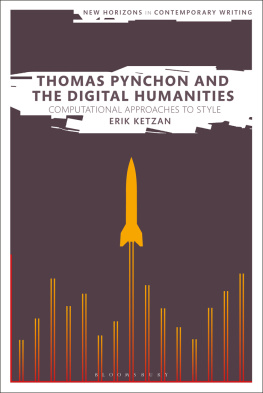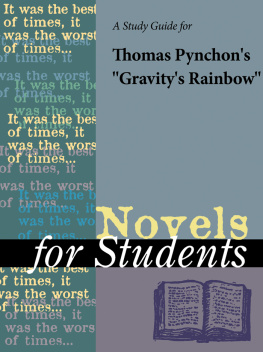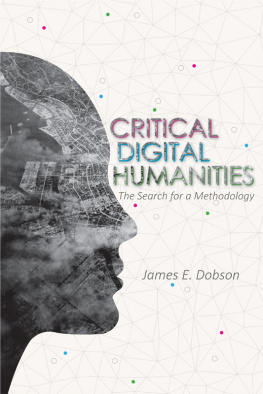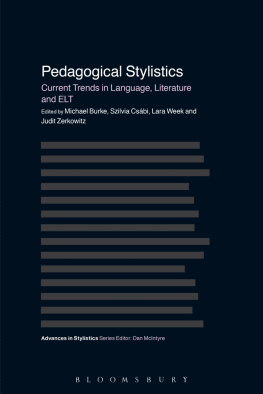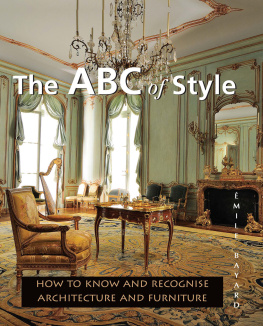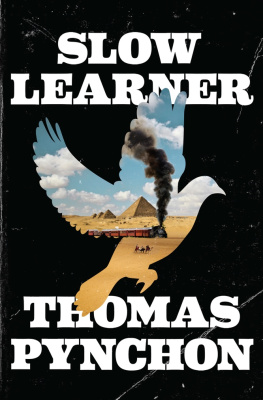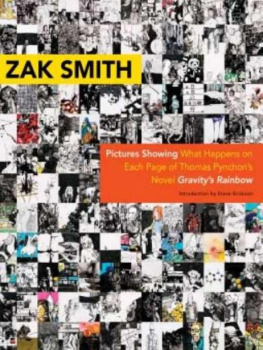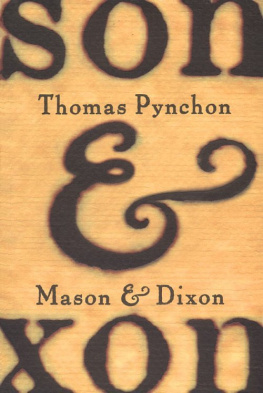
Thomas Pynchon and the Digital Humanities
Thomas Pynchon and the Digital Humanities
Computational Approaches to Style
Erik Ketzan

BLOOMSBURY ACADEMIC
Bloomsbury Publishing Plc
50 Bedford Square, London, WC1B 3DP, UK
1385 Broadway, New York, NY 10018, USA
29 Earlsfort Terrace, Dublin 2, Ireland
BLOOMSBURY, BLOOMSBURY ACADEMIC and the Diana logo are trademarks of Bloomsbury Publishing Plc
First published in Great Britain 2022
Copyright Erik Ketzan, 2022
Erik Ketzan has asserted his right under the Copyright, Designs and Patents Act, 1988, to be identified as Author of this work.
For legal purposes the constitute an extension of this copyright page.
Cover design: Eleanor Rose and Namkwan Cho
All rights reserved. No part of this publication may be reproduced or transmitted in any form or by any means, electronic or mechanical, including photocopying, recording, or any information storage or retrieval system, without prior permission in writing from the publishers.
Bloomsbury Publishing Plc does not have any control over, or responsibility for, any third-party websites referred to or in this book. All internet addresses given in this book were correct at the time of going to press. The author and publisher regret any inconvenience caused if addresses have changed or sites have ceased to exist, but can accept no responsibility for any such changes.
A catalogue record for this book is available from the British Library.
A catalog record for this book is available from the Library of Congress.
ISBN: HB: 978-1-3502-1183-4
ePDF: 978-1-3502-1184-1
eBook: 978-1-3502-1185-8
Series: New Horizons in Contemporary Writing
To find out more about our authors and books visit www.bloomsbury.com and sign up for our newsletters.
New Horizons in Contemporary Writing
In the wake of unprecedented technological and social change, contemporary literature has evolved a dazzling array of new forms that traditional modes and terms of literary criticism have struggled to keep up with. New Horizons in Contemporary Writing presents cutting-edge research scholarship that provides new insights into this unique period of creative and critical transformation.
Series Editors:
Martin Eve and Bryan Cheyette
Editorial Board: Sin Adiseshiah (University of Lincoln, UK), Sara Blair (University of Michigan, USA), Peter Boxall (University of Sussex, UK), Robert Eaglestone (Royal Holloway, University of London, UK), Rita Felski (University of Virginia, USA), Rachael Gilmour (Queen Mary, University of London, UK), Caroline Levine (University of WisconsinMadison, USA), Roger Luckhurst (Birkbeck, University of London, UK), Adam Kelly (York University, UK), Antony Rowland (Manchester Metropolitan University, UK), John Schad (Lancaster University, UK), Pamela Thurschwell (University of Sussex, UK), Ted Underwood (University of Illinois at Urbana-Champaign, USA).
Volumes in the series:
Jeanette Wintersons Narratives of Desire , Shareena Z. Hamzah-Osbourne
Transatlantic Fictions of 9/11 and the War on Terror , Susana Arajo
Life Lines: Writing Transcultural Adoption , John McLeod
South African Literatures Russian Soul , Jeanne-Marie Jackson
The Politics of Jewishness in Contemporary World Literature , Isabelle Hesse
Writing After Postcolonialism: Francophone North African Literature in Transition , Jane Hiddleston
David Mitchells Post-Secular World , Rose Harris-Birtill
New Media and the Transformation of Postmodern American Literature , Casey Michael Henry
Postcolonialism After World Literature , Lorna Burns
Jonathan Lethem and the Galaxy of Writing , Joseph Brooker
The Contemporary Post-Apocalyptic Novel , Diletta De Cristofaro
David Foster Wallaces Toxic Sexualit y, Edward Jackson
Wanderwords: Language Migration in American Literature , Maria Lauret
Northern Irish Writing After the Troubles , Caroline Magennis
Forthcoming volumes:
Contemporary Fiction, Celebrity Culture, and the Market for Modernism , Carey Mickalites
Creaturely Forms in Contemporary Literature , Dominic OKey
Encyclopaedism and Totality in Contemporary Fiction , Kiron Ward
Contents
Figures
Tables
Thank you to the donor individual or organization, whose identity remains unknown to me, whose extremely generous support fully funded my PhD at Birkbeck, University of London via the Digital Humanities Scholarship. Thanks equally to Martin Paul Eve, PhD supervisor and editor, whose mentorship, friendship, and much-needed whip-cracking turned a three-page outline into the book you now hold in your hands. Thanks to my second dissertation supervisor, Mark Levene, for statistical wisdom. Thanks to Samuel Thomas and Christopher Ohge for criticism and encouragement in the viva. Thanks again to these two gentlemen, as well as one anonymous reviewer, for comments on the book manuscript. Thanks to colleagues at Birkbeck and the University of London at large, especially Joe Brooker for reviewing the Mason & Dixon chapter and Martin Steer for ad hoc Python tutoring. Herzlichen Dank to the mad geniuses at the Leibniz-Institut fr Deutsche Sprache and the CLARIN project for camaraderie and introducing me to the dark arts of corpus linguistics: Andreas Witt, Oliver Schonefeld, Peter Fischer, Norman Fiedler, Peter Fankhauser, Piotr Baski, Pawe Kamocki, and Julia Wildgans. Thanks also to Jens Stegmann, Christof Schch, and Andreas van Cranenburgh for patiently answering many naive questions on corpus creation and query. Thanks to many in the Pynchon online world, especially Allen Ruch, whose website, The Libyrinth (later The Modern Word), first introduced me to Pynchon many years ago, as well as Laurence Daw, Tim Ware, and the many contributors to Pynchon Wiki , known and unknown. Thanks to the fantastic team at Bloomsbury, including Laura Cope, Ben Doyle, and Rachel Walker, as well as Shyam Sunder and the incredible copyediting team at Newgen. Thanks to the British Library, Birkbeck Library, Senate House Library, and Google Books for access to resources. To my mother the aesthete, my father the rationalist, my brother the polyglot, my sister the bibliophile, and M., for everything. Finally, hymns of thanks ( V ., 254) to Thomas Pynchon for writing these Fictions, folded acceptably between the covers of Books ( M&D , 359).
The novels and a short story collection by Thomas Pynchon are referenced parenthetically and in figures as:
V. | V. New York: Harper Perennial Classics, [1963] 1999. |
Lot 49 | The Crying of Lot 49 . New York: Lippincott, 1966. |
GR | Gravitys Rainbow . New York: Viking, 1973. |
SL | Slow Learner . New York: Little, Brown, 1984. |
Shorts | The short stories published in Slow Learner , as well as the uncollected story, The Secret Integration. |
Vine | Vineland . New York: Little, Brown, 1990. |
M&D | Mason & Dixon . New York: Henry Holt, 1997. |
ATD | Against the Day . New York: Penguin, 2006. |
IV | Inherent Vice . New York: Penguin, 2009. |
BE | Bleeding Edge . New York: Penguin, 2013. |
You guys, youre like the Puritans are about the Bible. So hung up with words, words.
Next page
